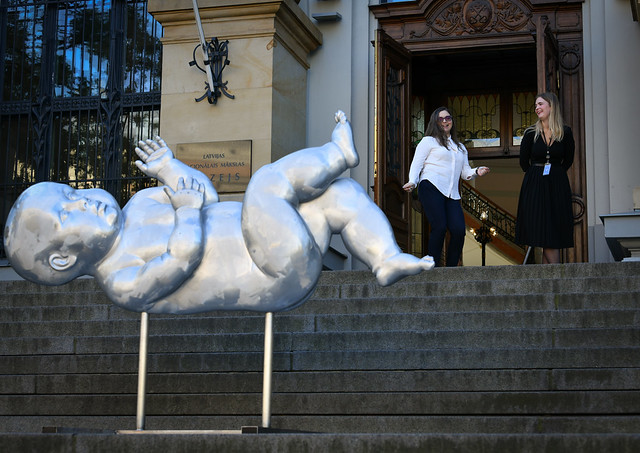In his opening speech, President of Latvia said: ‘This discussion has a very good objective – to support cross-generational dialogue on social cohesion. As regards to the specific role of youth in public discourse, I believe that it is important for young people to contribute to shaping of public opinion, and all other generations should be equally active in this dialogue too. There is no need to support youngsters by giving them any privileges compared to other age groups, like seniors. All groups should have equal opportunities. But what is different about youth is that their worldviews and hunches about the future vary from those of other generations because young people represent a group of society that is still developing. In other words, your personality and worldviews mature when you reach the age of 25-30. Sustainable society largely depends on passing values and culture down to next generations, thus it is crucial to teach those values at this stage of life. We soak up values through information, experience and role models. Technologies, of course, have changed this natural evolution in recent years. I mean, we must be very careful about sources from which our youth draws its knowledge nowadays.’
Aim of the discussion is to collect more information about how to approach youth, facilitate cross-generational dialogue and promote the culture of knowledge transfer between generations. According to President Levits, ‘education system is the main tool for promoting talent, but value education is something we need to focus on more nowadays: values stay with us throughout our lives, skills and knowledge may not. Values are more stable and evolve much slower. Learning and transfer of knowledge create balance in the society. The primary purpose of higher education is to help personality develop and we should not consider people a capital. That would be a very simplistic way to look at men and young people in particular’.
Egils Levits also urged everyone to think about the national youth policy and whether it meets the modern public administration standards.
Other panellists included Linda Helmane, Executive Director, Foreign Investors' Council in Latvia, Fredis Bikovs, Chairman of the Board, ABSL Latvia, and Natālija Knipše, UN Youth Delegate from Latvia. Discussion was organised and moderated by Kristiāna Plāte, who is the first UN Youth Delegate from Latvia.





